Graham Reid | | 6 min read
You Are Here, Elemental Mix with guitarist Sneaky Pete Kleinlow
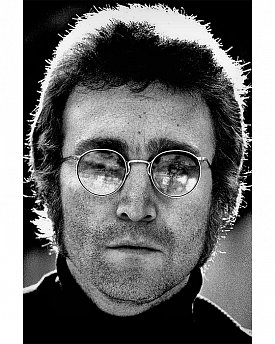
The recent release of Paul McCartney's l974 live-in-the-studio set One Hand Clapping – and, more particularly, the very detailed book The McCartney Legacy, Vol. 1 1969-1973 – served to remind just how chaotic and unfocused his career was in the immediate post-Beatles period.
In many ways his former partner's was even more so.
John Lennon had already released some inconsequential albums with Yoko Ono before the break-up: two volumes of Unfinished Music and The Wedding Album, all of which were experimental but largely irrelevant and for most even unlistenable.
He had some work to do if he wanted to regain a music audience rather than being the media's clown, good for headlines and editorial cartoons.
Redemption came from an unexpected source, the primal therapy treatment he did with Arthur Janov whose screaming practice and drilling down into unresolved issues opened Lennon up emotionally. (And, as with the Maharishi Mahesh Yoga, someone whom Lennon immediately began proselytising for).
All of that lead to the astonishing Plastic Ono Band album at the end of 1970.
It is hard to think of any other album by a major artist which is so raw, candid, self-abasing and redemptive than that collection in which he screamed out the pain of the absent parents in his youth and bade farewell to the Beatles with “I don't believe in Beatles, the dream is over . . . I was the dreamweaver but now I am John”.
It seemed to signal and artistic and creative rebirth.
But the following three years were haphazard and bizarre: the sniping war with McCartney continued through the media and on albums, even Imagine which followed the POB included the bruising How Do You Sleep? aimed at his former partner.
Then he seemed to disavow Britain and peace activism when he and Yoko relocated to New York and he fell in with activists, heroin and angry protest. The resulting, Phil Spector-produced double album Some Time in New York City was widely dismissed as a counter-culture catch-all of social issues.
Musically it was often energetically abrasive rock'n'roll with the Elephant's Memory Band and there was certainly strong material on it, but it was a commercial and critical failure and the anti-Yoko faction could take delight in having more evidence – on the live album – of her sheer awfulness.
Lennon then retreated from the barricades as he fought to become a US citizen, he and Yoko embedded themselves together in New York. Then as he started to fashion new material for what would become the Mind Games album he and Ono separated (at her instigation apparently) and later he left NYC for California with companion May Pang (also at Ono's instigation) for his notorious “lost weekend” of 18 months.
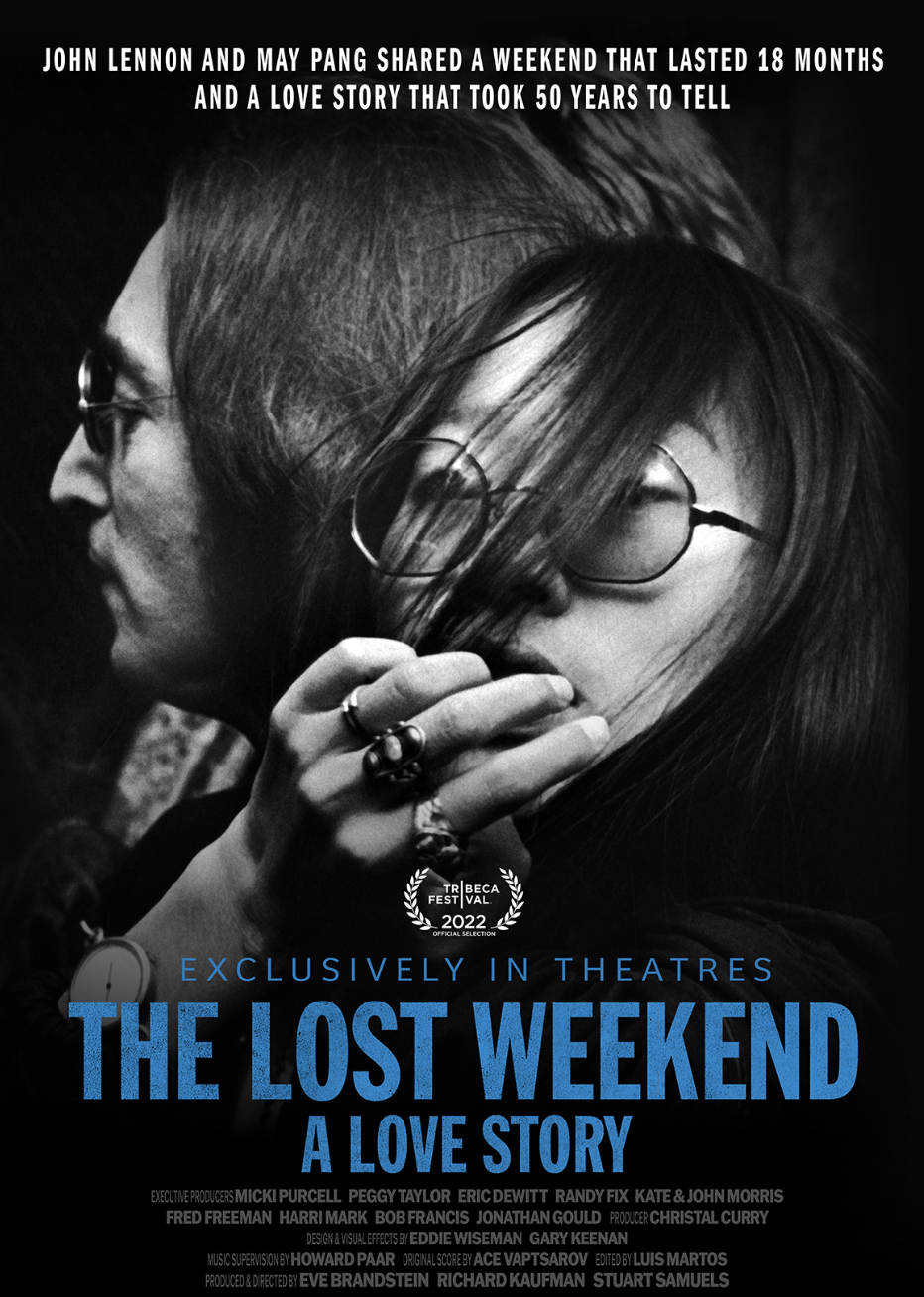 All this – musical and emotional swerves, a few concerts and many television appearances – in just 36 months.
All this – musical and emotional swerves, a few concerts and many television appearances – in just 36 months.
When the self-produced, New York-recorded Mind Games was released in late '73 it met with some scathing reviews, some critics suggesting Lennon was finished as a creative force, others noting how inconsistent the album and his writing was (from the soaring title track to the rock'n'roll throw-aways of Bring on the Lucie and Meat City).
As with the POB album, Lennon was using the studio to reveal himself but at this time it was his need to be reconciled with Ono (Aisumasen, Out the Blue).
These days there's often a revisionist drive to locate a “lost classic”or to suggest that some music has been proven to be better than people at the time thought: McCartney's Ram has been one of the latter and it's possible Lennon's Walls and Bridges which appeared after Mind Games and was superior may also get that consideration.
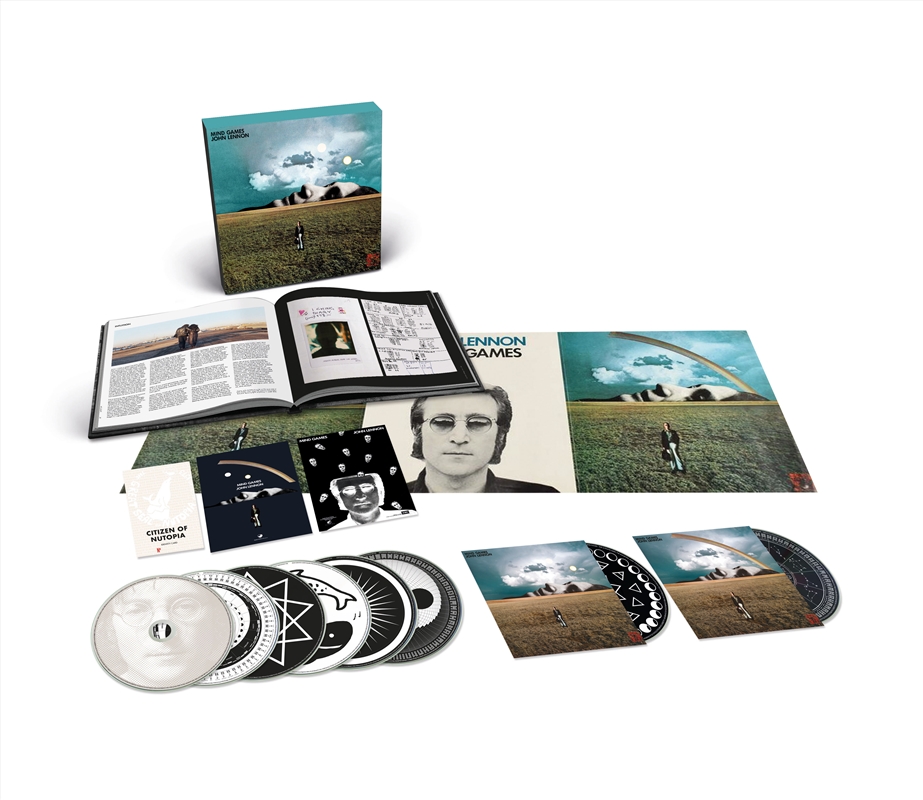 But the new expanded box set of Mind Games – with artwork which repositions Ono at the centre and May Pang (who organised Lennon's life during this period and was his companion) ignored – feels a little desperate to impress by sheer weight.
But the new expanded box set of Mind Games – with artwork which repositions Ono at the centre and May Pang (who organised Lennon's life during this period and was his companion) ignored – feels a little desperate to impress by sheer weight.
Mind Games: The Ultimate Collection offers everything from raw studio mixes, various outtake versions of the songs and “the elements mixes” across six CDs and two Blu-Ray discs of the same by Sean Ono Lennon.
So the album which was once”produced by John Lennon” has now been re-produced by Sean.
It's an impressive piece of work, diligence and packaging, especially the book which goes into detail about the background of the album and individual songs as well as Sean's mixes. But as expected, in a revisionist view, it brings Ono into the centre of the frame and May Pang gets no mention at all.
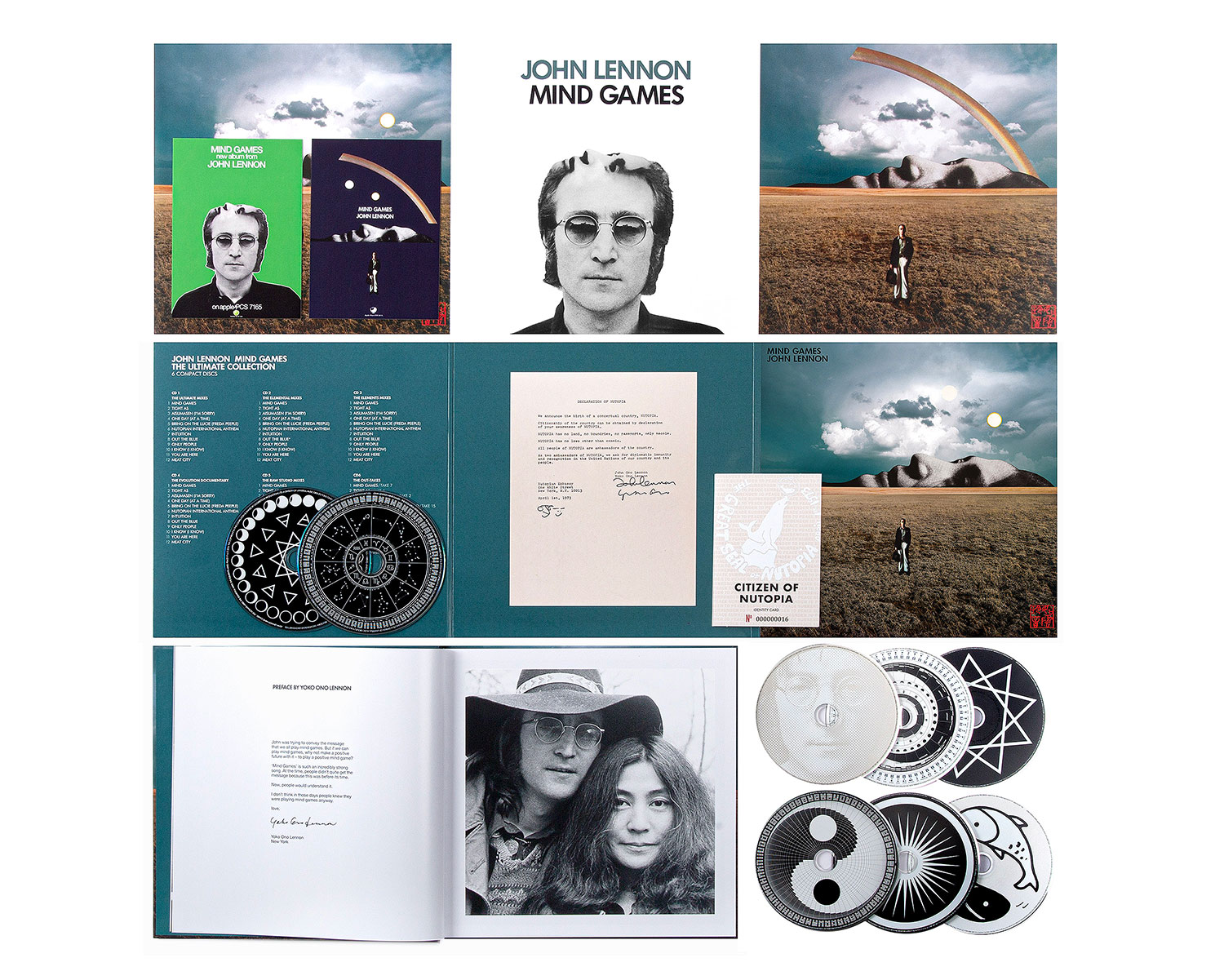 In the 132-page hardback book which comes with the expansive set Lennon says the album was “an interim record between being a manic political lunatic to back to being a musician again”.
In the 132-page hardback book which comes with the expansive set Lennon says the album was “an interim record between being a manic political lunatic to back to being a musician again”.
Some of the lyrics and songs still seem to be the residue of reductive rhetoric from that political mindset, like the lumbering Bring On the Lucie/Freda Peeple (“you're making all our decisions, we have just one request of you . . . free the people now”), and Only People (“we don't want no pig brother scene”).
Melodically he was getting back to prior form however with songs like I Know I Know, Out the Blue and especially the lovely ballad You Are Here (about Ono, his hope was to be reconciled after she kicked him out top go with May Pang)
And he proved he could still rock with the best, albeit in a style more Fifties rock'n'roll than what people had come to describe as rock by the early Seventies: Meat City.
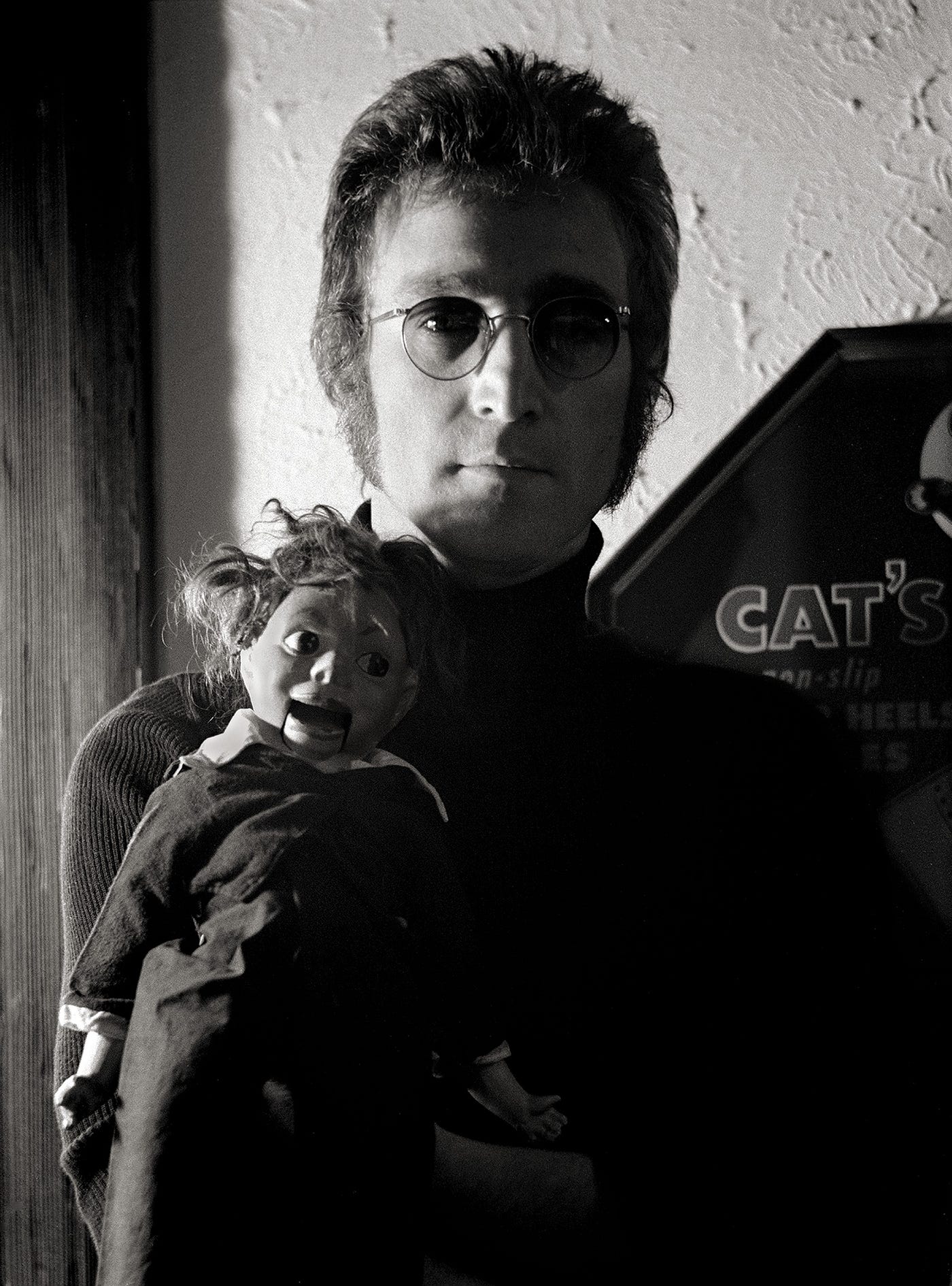 But there are trite lyrics throughout: “I'm the fish and you're the sea . . .you're the honey and I'm the bee” are hardly befitting of a man who gave us Norwegian Wood, Nowhere Man, Strawberry Fields Forever, I Am the Walrus, Lucy in the Sky With Diamonds, Across the Universe . . .
But there are trite lyrics throughout: “I'm the fish and you're the sea . . .you're the honey and I'm the bee” are hardly befitting of a man who gave us Norwegian Wood, Nowhere Man, Strawberry Fields Forever, I Am the Walrus, Lucy in the Sky With Diamonds, Across the Universe . . .
Songs like the country-flavoured Tight A$ and One Day At A Time are passable and enjoyable songs, but again Lennon was lyrically coasting in the company of excellent musicians (among them drummer Jim Keltner, guitarist David Spinozza, Sneaky Pete Kleinlow on pedal steel) who elevate the material.
Critics at the time aimed their barbs at Lennon's production which perhaps explains Sean multiple mixes.
Certainly you can't help but be impressed by Lennon's vocal power on the Mind Games title track in the stripped down Elemental Mixes where it is without drums and the subtle reggae groove, bass and organ provide the skeletal settings.
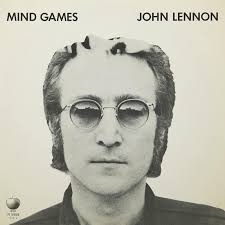 Tight A$ is a jaunty rocker and a close cousin to One After 909, Meat City is a bruising rocker (although it sounds better with driving drums) and elsewhere we have what sounds like Lennon quietly and in an intimate setting: Aisumasen with just Sneaky Pete and organist Ken Asher; the lovely I Know I Know with just Spinozza with a flicker of I've Got a Feeling peaking in; You Are Here a deliciously beautiful ballad with Sneaky Pete's glistening filagrees and the choral-style backing vocals on the women singers.
Tight A$ is a jaunty rocker and a close cousin to One After 909, Meat City is a bruising rocker (although it sounds better with driving drums) and elsewhere we have what sounds like Lennon quietly and in an intimate setting: Aisumasen with just Sneaky Pete and organist Ken Asher; the lovely I Know I Know with just Spinozza with a flicker of I've Got a Feeling peaking in; You Are Here a deliciously beautiful ballad with Sneaky Pete's glistening filagrees and the choral-style backing vocals on the women singers.
The Elemental Mixes certainly allow you to focus on the musical details.
The Elements Mixes are even more finely focused on parts otherwise buried or lost in the original mixes: just Ascher's organ from Mind Games and piano on Out The Blue; just Sneaky Pete's part in Tight A$; Pete and Asher's parts on You Are Here; just bassist Edwards and the double drums of Keltner and Marotta and so on.
Trainspotter stuff perhaps which doesn't add much to the sum of human knowledge, but interesting nonetheless.
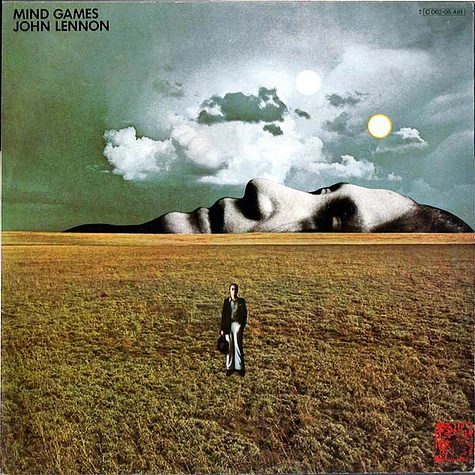 The Evolution Documentaries are Lennon's demos and how the songs developed from often hoarse and unpromising ideas into the finished songs via editing, lyrical changes and studio production.
The Evolution Documentaries are Lennon's demos and how the songs developed from often hoarse and unpromising ideas into the finished songs via editing, lyrical changes and studio production.
This disc and the Raw Studio Mixes disc are for Lennon obsessives or those who have the time and patience to engage in a deep dive.
Mind Games wasn't Lennon's best solo album and – like the others, with perhaps the exception of the POB – was patchy. Sean Lennon is pushing it to suggest it was overlooked at the time and is much underrated.
His dad was right, it was a transitional album, and one of moments more than a coherent statement.
The vastly expanded collection doesn't shift the dial on that assessment.
.
You can hear the remixed Mind Games in its various iterations at Spotify here.




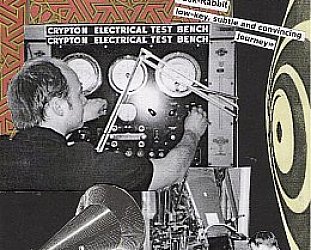
post a comment